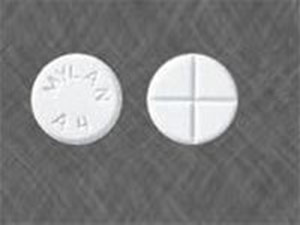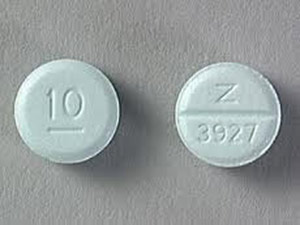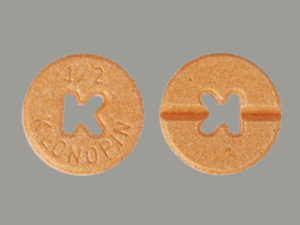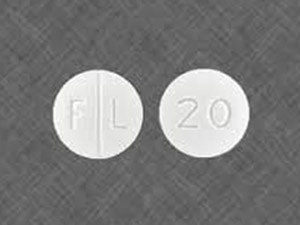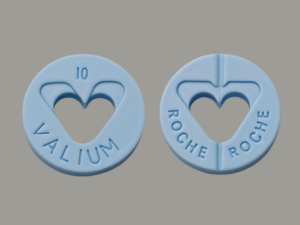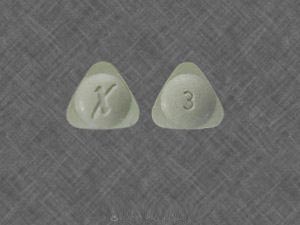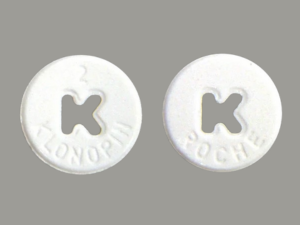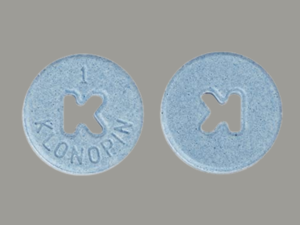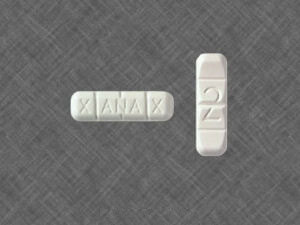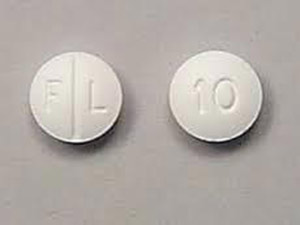Category: Anxiety
Showing 1–12 of 31 resultsSorted by latest
Anxiety is a common yet complex mental health condition that impacts millions of people worldwide. It goes beyond the occasional stress and can significantly impact a person’s daily life. In this guide, we will delve into the definition of anxiety, its symptoms, causes, effects, diagnosis, treatment, self-care strategies, prevention, and coping mechanisms to empower people with the knowledge they need to manage effectively. To dive into the depth of the topic, keep reading.
Definition of Anxiety:
Anxiety is a natural reaction to stress, characterized by feelings of fear, worry, or unease. While it is normal to experience in certain situations, such as before an important presentation or exam, persistent and excessive that interrupts regular life may indicate an anxiety disorder.
There are several types of anxiety disorders, including GAD (generalized anxiety disorder), panic disorders, SAD (social anxiety disorder), and specific phobias. You must consult your healthcare expert if you have any of these conditions. In the further lines, we will discuss the treatments of anxiety.
Symptoms of anxiety
Anxiety can manifest in various ways, and people may experience a range of symptoms. It’s important to note that experiencing occasional is a normal part of life, but when it becomes persistent, overwhelming, or interferes with daily functioning, it may be categorized as a disorder. Here are common symptoms associated with anxiety:
Excessive Worrying: Uncontrollable and Persistent worry about everyday things, often with a sense of impending doom.
Restlessness: Feeling on edge, restless, or unable to relax.
Fatigue: Constant lack of energy and tiredness, even after a full night’s sleep.
Muscle Tension: Physical symptoms such as muscle aches, cramps, tension, or soreness.
Irritability: Easily becoming agitated or irritable.
Sleep Disturbances: Difficulty falling asleep, staying asleep, or experiencing restless sleep.
Difficulty Concentrating: Trouble focusing or finding that your mind goes blank.
Increased Heart Rate: Feeling your heart racing or pounding (palpitations).
Shortness of Breath: Feeling breathless or having difficulty breathing.
Chest Pain or Discomfort: Chest tightness, pain, or discomfort, often mimicking symptoms of a heart attack.
Causes of Anxiety
Anxiety may have various causes, and it often results from a combination of factors. It’s essential to note that everyone experiences differently, and what triggers in one person may not be the same for another. Here are a few common causes and contributing factors to anxiety:
Genetics: A family history of anxiety disorder or other mental health conditions may increase the likelihood of a person experiencing anxiety.
Stressful Life Events: Major life changes, such as job loss, divorce, the death of a loved one, or financial difficulties, can contribute to heightened anxiety levels.
Medical Conditions: Certain medical conditions, such as chronic illnesses or hormonal imbalances, may be associated with anxiety symptoms.
Brain Structure: Some research suggests that the structure of the brain, mainly the amygdala (responsible for processing emotions) and the hippocampus (associated with memory and emotion regulation), may play a role in disorders.
Substance Abuse: The use of substances like drugs and alcohol can contribute to or exacerbate anxiety symptoms.
These are the major causes of. Along with these, various other factors may cause anxiety issues.
Effects of Anxiety:
The effects of anxiety extend beyond mental discomfort and may affect various aspects of a person’s life. Some effects include:
a. Impaired social relationships: Social anxiety may hinder interpersonal connections.
b. Occupational challenges: Anxiety can interfere with job performance and career advancement.
c. Physical health issues: Chronic anxiety may contribute to cardiovascular problems and weakened immune function.
d. Substance abuse: Some people may turn to substances to cope with, leading to addiction issues.
Understanding these impacts highlights how critical it is to manage as soon as possible and as a whole.
Diagnosis of Anxiety
Accurate diagnosis is crucial for effective management. Mental health experts use various assessment tools, interviews, and observation to diagnose anxiety disorders. It’s vital to consider the duration, intensity, and impact of symptoms on daily functioning.
Collaborative discussions between patients and healthcare experts help tailor treatment plans to specific needs. They may better suggest treatment plans that may help to overcome anxiety.
Treatment of Anxiety
Anxiety can be treated with a mix of lifestyle changes, therapeutic techniques, and, occasionally, medication. Remembering that every person is unique and that what suits one may not suit another is crucial. Plans of care should be customized for each patient.
Here are a few common approaches to treating anxiety:
Therapy:
Cognitive Behavioral Therapy (CBT): This is an often-used therapeutic approach that assists people in identifying and changing negative thought patterns and behaviours connected with anxiety.
Exposure Therapy: This involves gradually facing and overcoming fears in a controlled and supportive environment.
Mindfulness-Based Therapies: Techniques like mindfulness meditation and ACT (acceptance and commitment therapy) can help people become more self-aware of their inner thoughts and feelings without judgment.
Medication:
Antidepressants: Certain antidepressant drugs, such as SSRIs or benzodiazepines, may be prescribed to help treat anxiety symptoms. You should consult with a healthcare expert to determine the most appropriate drug and dosage.
Lifestyle Changes:
Regular Exercise: Physical activity has been demonstrated to reduce by releasing endorphins, improving mood, and promoting better sleep.
Healthy Diet: A balanced diet can positively impact mental health. Avoiding excessive caffeine and sugar intake may also help regulate anxiety.
Adequate Sleep: Lack of sleep may contribute to. You should follow a consistent sleep schedule, as it is essential for your mental health.
Stress Management Techniques: Self-Care Strategies for Anxiety
Relaxation Techniques: Practices such as PMR or progressive muscle relaxation, deep breathing, and guided imagery may help calm the mind and reduce anxiety.
Time Management: Organizing and prioritizing tasks can help prevent feeling overwhelmed, reducing anxiety levels.
Social Support:
Talk to Others: Sharing your feelings and concerns with a trustworthy person, close friend, mental health expert, or family member may provide emotional support.
Join Support Groups: Connecting with others who experience similar challenges can be beneficial.
Mind-Body Techniques:
Yoga and Tai Chi: These practices combine physical activity with mindfulness and can help reduce anxiety.
Biofeedback: This technique involves learning to control physiological functions, such as heart rate and muscle tension, to reduce anxiety.
Prevention of Anxiety
Cognitive Strategies:
Cognitive strategies refer to specific techniques and approaches that can be used to manage and alleviate anxiety symptoms. These strategies focus on identifying and challenging negative thought patterns and beliefs that contribute to anxiety and replacing them with more realistic and positive thoughts.
Positive Thinking: Engage in constructive thinking and resist pessimistic ideas. It is possible to alter thought patterns that fuel worry using cognitive techniques like cognitive restructuring.
Set Realistic Goals: You should establish achievable and realistic goals as they help to avoid unnecessary stress and pressure.
Limit Stimulant Intake:
Caffeine and Nicotine: Limit the consumption of stimulants like nicotine and caffeine, as they can exacerbate symptoms in some people.
Seek Professional Help Early:
If you face persistent symptoms of anxiety or feel overwhelmed, consider seeking expert help early. A mental health expert can provide support, guidance, and appropriate interventions.
Limit Alcohol and Substance Use:
Excessive alcohol or substance use may contribute to this. You should limit or avoid these substances, especially if you are prone to anxiety.
Coping with Anxiety
Living with anxiety requires ongoing coping strategies. Some effective coping mechanisms include:
a. Positive self-talk: Challenge negative thoughts and replace them with positive affirmations.
b. Time management: You should prioritize tasks and set realistic goals to avoid feeling overwhelmed.
c. Relaxation techniques: Incorporate activities like yoga or progressive muscle relaxation to promote calmness.
d. Seeking support: You may connect with close friends, family, or support groups to share experiences and obtain encouragement.
Coping with anxiety is a continuous process that evolves, and people may need to experiment with various strategies to find what works best for them.
Conclusion
I hope you find this blog informative. Anxiety is a prevalent and complex mental health condition that impacts millions of lives. Understanding its definition, symptoms, causes, effects, diagnosis, and treatment options is essential for effective management.
By incorporating self-care strategies, prevention measures, and coping mechanisms, people can navigate the challenges of and lead fulfilling lives. Seeking professional help and building a strong support system are critical steps toward mental well-being, emphasizing the importance of a complete and holistic approach to anxiety management.

